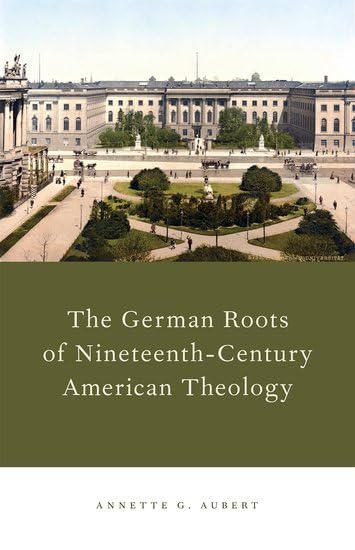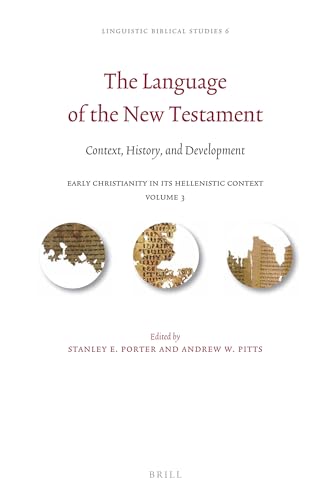The German Roots of Nineteenth-Century American Theology
Written by Annette G. Aubert Reviewed By Paul Kjoss HelsethAnnette Aubert advances the intriguing thesis that “in order to comprehend certain strands of nineteenth-century American Reformed theology” (p. 220), it is necessary to understand “how the theological ideas of nineteenth-century Germany affected the Reformed theological landscape in the United States” (pp. 2–3). The changes that took place in American Reformed theology throughout the nineteenth-century will be better understood, she contends, when those changes are examined against the backdrop of what she calls “a broader intellectual context” (p. 3), one that acknowledges that American Reformed theologians were in “transatlantic dialogue” (p. 8) with German thinkers who were also responding to theological challenges “prompted by modern science and Enlightenment thinking” (p. 1). Aubert’s groundbreaking analysis traces “specific theological methods and atonement themes” throughout the works of Emanuel Vogel Gerhart and Charles Hodge in order to illustrate how Reformed theologians at Mercersburg and Old Princeton “integrated German theology into their thinking” (p. 10) as they sought to respond faithfully to the “progressive Zeitgeist” that was emerging “on both sides of the Atlantic” (p. 17). Her work is meticulously researched, carefully written, tightly reasoned, and remarkably compelling, and it successfully demonstrates that neither Gerhart nor Hodge should be written off as narrow-minded, provincial, or reactionary thinkers. Rather, they should be regarded as informed theologians who read widely and developed their theological methods and distinct doctrines through ongoing dialogue with a broad range of more or less orthodox sources, including “leading nineteenth-century German scholars” (p. 220).
Following a brief introduction in which she states her thesis and summarizes the broad outline of an argument that proves at times to be more than just a little demanding, Aubert begins to explore how Gerhart and Hodge “defined the atonement in light of their own theological methods and engagement with German theology” (p. 2). In the three chapters that comprise Part One, she discusses the formative impact various influences had on the European and American intellectual contexts of the nineteenth century. Among the influences she examines are the Scottish Common Sense Realism of philosophers like Thomas Reid, the inductive scientific method of modern thinkers like Francis Bacon and Alexander von Humboldt, the absolute idealism of German philosophers like Georg Hegel, the self-consciously subjective and progressive theology of liberal theologians like Friedrich Schleiermacher, and the various formulations of Vermittlungstheologie (“mediating theology”) offered by German scholars like Carl Ullmann, Friedrich Tholuck, Karl Hagenbach, and Isaak Dorner.
In Part Two, Aubert then considers the role these influences played in the development of the theological methods that were advanced by the scholars at Mercersburg and Old Princeton, and she explores the impact these methods had on their distinct doctrines of the atonement. In Chapters Four and Five she demonstrates that Gerhart “moved away” (p. 127) from the prevailing American views of the atonement because his indebtedness to Schleiermacher, idealist philosophy, and German mediating theology (p. 23) led him to abandon the traditional locus approach (p. 99) to the study of theology. In Chapters Six and Seven she then explains why Hodge retained the classically Reformed emphasis upon “vicarious satisfaction” (p. 209) despite his extensive interaction with German scholarship. According to Aubert, Hodge was persuaded that the concept of satisfaction must stand at “the core” (p. 209) of any orthodox understanding of the atonement in part because his contact with more “orthodox and confessional” (p. 160) scholars like Ernst Hengstenberg made him reluctant to adopt “a theological method based on a central dogma” (p. 63). Indeed, he refused to replace Scripture with Christology as the “principium cognoscendi of theology” (p. 63; cf. 93) in part because German biblical theologians encouraged him to reject the “confessional criticism, subjective theology, and progressive doctrine” (p. 72) of “Schleiermacher and the mediating theologians” (p. 194), and they did so by reinforcing his foundational commitment to the thoroughly orthodox notion that Scripture alone “provides the source for all aspects of theology” (p. 103). Finally, in her conclusion Aubert capably summarizes the broad outline of her argument and restates—in an admirably modest fashion—the central contention of her groundbreaking research: “Acknowledging the influences of Schleiermacher, the mediating theologians, and Ernst Wilhelm Hengstenberg allows for a more complete understanding of the Reformed American thinkers discussed in this book” (p. 220).
In my estimation, The German Roots of Nineteenth-Century American Theology should be required reading for those with an advanced interest in American church history for at least two important reasons. In the first place, it sheds much-needed light on important debates that had a formative impact upon the Reformed theological landscape of nineteenth-century America, including the ongoing and often contentious debates between the Reformed theologians at Mercersburg and Old Princeton Seminaries. It should be thoughtfully considered in the second place because it forthrightly and persuasively challenges a number of the sacred cows that are all too common in the historiography of North American evangelicalism, particularly those that are associated with Hodge and his colleagues at Old Princeton. In this regard, Aubert’s concluding assessment of Hodge—which is grounded in painstaking research throughout her volume—is as striking as it is refreshing. “If Hodge’s theological method is analyzed (as this book has done) in terms of his views on the noetic effects of sin and regenerated use of reason (theologia regenitorum),” she confidently and correctly concludes, “it cannot be argued that Hodge based his theology primarily on Scottish philosophy or rationalism. His theology did not embrace the Pelagian and rationalistic anthropological views of Thomas Reid. Instead, his theological views on anthropology (inspired by Hengstenberg and Turretin) are in agreement with Calvinism and Reformed orthodoxy” (pp. 224–25). While it goes without saying that given the depth of this volume even admiring readers will likely quibble with one aspect of Aubert’s analysis or another—for example, I would suggest that there is an unresolved tension in her discussion of Hodge’s understanding of science that leaves the mistaken impression that he really was a “naïve realist” with respect to his approach to the “book of nature” (cf. pp. 176–79)—nevertheless her revisionist scholarship deserves not just to be read widely but also celebrated, especially by those who have long suspected that there is something fishy about the standard interpretation of the Princeton Theology.
Paul Kjoss Helseth
Paul Kjoss Helseth is a ruling elder at Good Shepherd Presbyterian Church (PCA) in Wayzata, Minnesota. He is also professor of Christian thought at the University of Northwestern—St. Paul, in Roseville, Minnesota.
Other Articles in this Issue
Too often people think of the Reformation in terms of an abstract theological debate...
Abstract: Evangelical Faith and the Challenge of Historical Criticism, edited by Christopher Hays and Christopher Ansberry, argues that evangelical scholars have failed to embrace historical criticism to the extent that they could and should...
Thomas Prince, editor of The Christian History—the first religious periodical in American history—could hardly have invented the Great Awakening, as Frank Lambert argues...
Theology is first and foremost about who God is and then about what he has done...
I would like to consider several elements in reviewing Bray’s work...







